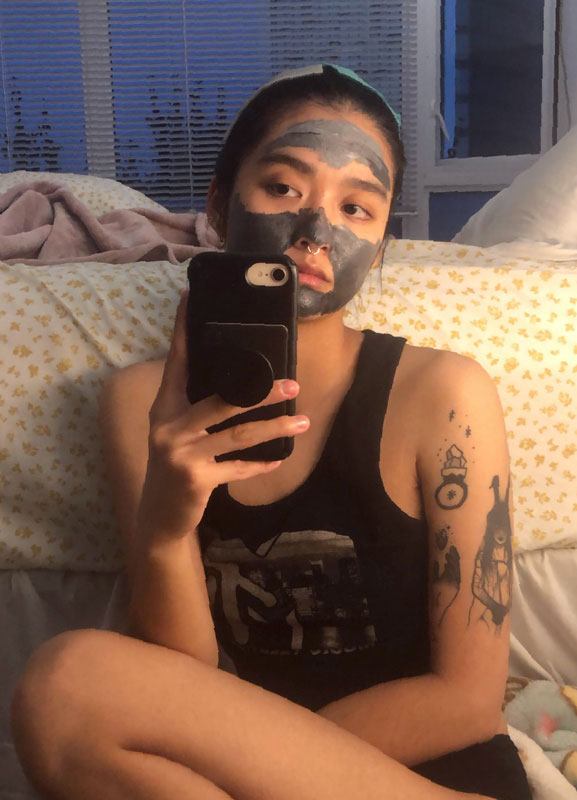Reading Beni Xiao’s work is a bit like meeting a new friend, and a bit like coming home to an old one.
The uniqueness, vulnerability and joy of their work makes it true; true to who they are, and true to the world they are reflecting. “You can’t pretend that art isn’t informed by or created by the world we live in,” Xiao says. “My work is largely a reflection of what’s going on around me at any given time.”
Xiao is a queer, trans, Chinese, disabled artist who has been living and writing in Vancouver for over five years. Although Xiao is known for their 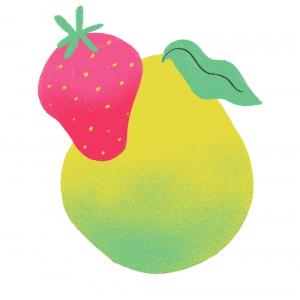 poetry, they also sew, play piano and draw, and enjoy writing and illustrating their own comics. Even when surrounded by so much art, Xiao has gravitated towards poetry and its potential for direct communication, because it offers vulnerability. “I don’t approach [art forms] all in the same way, and [they don’t] always feel as personal,” Xiao reflects. “Maybe that’s why I do so many art forms: because I’m looking for different ways to express myself.”
poetry, they also sew, play piano and draw, and enjoy writing and illustrating their own comics. Even when surrounded by so much art, Xiao has gravitated towards poetry and its potential for direct communication, because it offers vulnerability. “I don’t approach [art forms] all in the same way, and [they don’t] always feel as personal,” Xiao reflects. “Maybe that’s why I do so many art forms: because I’m looking for different ways to express myself.”
“I don’t think art or writing is inherently personal […] There’s so much art that is frivolous, and that’s allowed [….] I do find that for me, my poetry is very vulnerable.”
It is perhaps Xiao’s attention to detail in their work that makes it feel so intimate. Xiao’s words turn the most ordinary aspects of life into a well of meaning. “It’s not something that I feel like I consciously started doing,” Xiao admits. Xiao’s writing process has evolved from journaling, and the desire to document the small memories they didn’t want to forget. “I’m sitting on the couch,” they offer as an example, “and I’m very content right now, it’s quiet, and everything is soft and warm. I just want to write this down, so I remember this moment of joy.”
“I guess sometimes I feel like I’m warping the memory I’m trying to preserve,” Xiao reflects, “Other times it can make me appreciate it more.” Xiao notes the ability for writing to help them uncover the feelings that come up as they write, allowing them to realize the importance of a moment, and why they were drawn to document it. Perhaps rather than preserving or warping a memory, poetry opens it up, remodels it, and breathes meaning into it.
It is no surprise, then, that Xiao’s work has a very immediate, even raw, feeling. The barrier between Xiao’s poetry and the world is papery thin. Xiao’s writing changes depending where they are, and at what time of year they are writing. The material they wrote while in Italy and Greece feels different from what they write in Vancouver, and the work they began during the summertime is different from anything else they write throughout the year. Somehow, Xiao’s environment permeates their work.
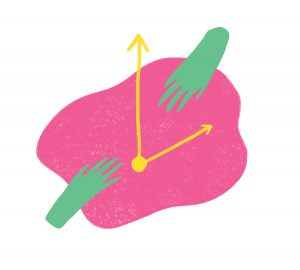 There is a strong and unique voice that draws readers into the intimacy and vibrancy of Xiao’s writing. “I definitely do think it is me,” Xiao concludes of their poetic voice, “Maybe not always the exact person I am, but definitely a version of me, or a part of me ” Xiao doesn’t write with the aim of replicating reality. “Sometimes in my poetry I’ll play pretend a little bit,” they explain, “as I’m going through a poem, different emotions come up, or a different mood happens on the page that I’m not necessarily feeling, and sometimes I’ll just kinda go with that.”
There is a strong and unique voice that draws readers into the intimacy and vibrancy of Xiao’s writing. “I definitely do think it is me,” Xiao concludes of their poetic voice, “Maybe not always the exact person I am, but definitely a version of me, or a part of me ” Xiao doesn’t write with the aim of replicating reality. “Sometimes in my poetry I’ll play pretend a little bit,” they explain, “as I’m going through a poem, different emotions come up, or a different mood happens on the page that I’m not necessarily feeling, and sometimes I’ll just kinda go with that.”
Xiao’s poems indeed have a life and energy of their own. “advice, or maybe just some ideas” begins with thoughtful, playful snippets of advice — but ends with the calming, grounded reassurance, ‘no matter how many times you don’t respond to a text, or you forget to eat a meal, or call in sick just to sleep in, try to love yourself / you owe yourself that much.’ Xiao will never hesitate to challenge us, and they will be the last person to sugarcoat the truth.
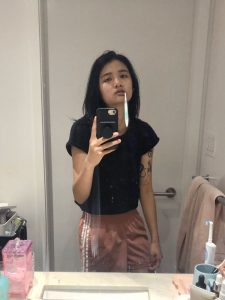
The uniqueness of Xiao’s voice comes from their openness, and they are as keen to share their joy as they are to articulate their uncertainty. In their quirky humour, Xiao invites us to pay attention to the small moments in our lives that are sources of joy. Two things that delight Xiao are “things that fit into other things” and “things that are round.” “I’m a really big fan of stuffed animals and eggs, because they’re round,” Xiao enthuses.
Perhaps Xiao’s work feels so joyful because of their ability to incorporate their sources of delight into their writing process. By allowing their work to flow in a direction, and then harkening back to an early idea, Xiao fits their work together: “It’s kind of like I’m playing tetris on the page, but with ideas” they explain.
“I like bugs a lot,” they add, “and I feel like they’re often there but not focused on.” 
Along with celebrating the unnoticed, a lot of Xiao’s current work honours the people with whom they share their life and their joy. “I write a lot of love letters to my friends,” they offer, “that’s a lot of the work that I’m working on right now.”
Although Xiao hasn’t always identified with being a writer, they were a poet even before they knew to claim the title. “When I started writing poetry at the end of high school, for a long time I didn’t necessarily consider what I was doing poetry,” they remember. Their work was quite unlike that of authors — such as Robert Frost — that populated the high school curriculum. It wasn’t until Xiao’s second year of university that they understood their work to be poetry: “I discovered a lot of American alt-lit writers, and I was like, ‘oh this is what I’m doing!’[…] That just made a big difference for me, and I started writing so much more from that moment.”
Since claiming the title of a poet, Xiao has been featured by Room Magazine, Sad Magazine, The Real Vancouver Writers’ Series and Can’t Lit. Their chapbook, Bad Egg, was published by Rahlia’s Ghost in 2017. Xiao is grateful to be part of the Vancouver writing community. “You meet unique, like-minded people, and a lot of them are writing from places that are very similar to where I’m coming from, so of course I’m able to relate to their work on a very personal level.”
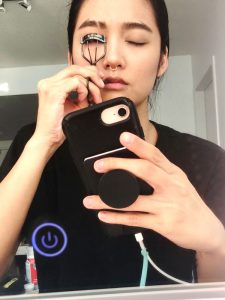
Where early in their career, Xiao was inspired by Jamie Mortara’s Some Planet, and by John Ana Carrete, who is still a favourite poet, most of the poetry they read now is written by their colleagues and peers. Xiao admires the work of Jane Shi, Santiago Ureña, Aja Moore, and Natalie Wee, a Toronto-based poet.
“Any time I see my friends read or they ask me to look over their work, or I read their work in a publication, it’s inspiring for me,” Xiao enthuses, “it makes me so excited about poetry, and it makes me so excited about my poetry.”
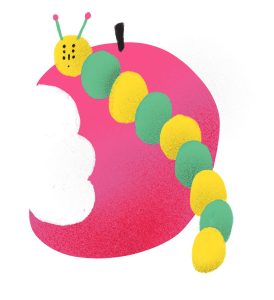 Xiao is currently working on a manuscript for a full-length book, which they started prior to publishing the Bad Egg chapbook. “I was working full time [after graduating], and that wasn’t sustainable for my body,” Xiao shares, “and then I spent most of last year resting and I feel like I didn’t really write much for about a year, but I’m writing again, so I feel like my manuscript will be finished at some point.” “I’m excited to be writing again. It feels good to be doing things I enjoy.”
Xiao is currently working on a manuscript for a full-length book, which they started prior to publishing the Bad Egg chapbook. “I was working full time [after graduating], and that wasn’t sustainable for my body,” Xiao shares, “and then I spent most of last year resting and I feel like I didn’t really write much for about a year, but I’m writing again, so I feel like my manuscript will be finished at some point.” “I’m excited to be writing again. It feels good to be doing things I enjoy.”
Along with writing, Xiao’s daily life is filled with their unique creativity and joy. “Time isn’t real anymore. We’re living in a pandemic,” they shrug, “All I do is play Animal Crossing.”“My favourite thing to do [in Animal Crossing] is catch bugs, because I love bugs,” Xiao laughs “My roommate is like ‘the bugs don’t make that much money, you should be catching fish’ and I’m like ‘but I don’t care about the fish.’” Even in a video game, Xiao will celebrate the smaller things.
In the meantime, Xiao will continue to create, and their work will continue to reflect our world. “Art is a byproduct of where we live” Xiao affirms, “I think it’s the artist’s responsibility to be mindful of how their art is influenced by the world they are bringing it into, and how this art will exist in context.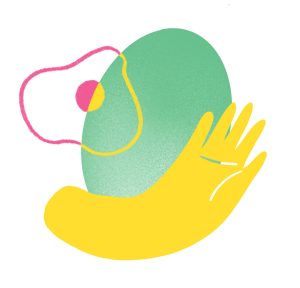 This doesn’t mean that every piece of art has to be made specifically for, and only to, address social issues. Just that you need to consider the impact of what you are doing, and why you are doing it.” There is no denying that Xiao’s art is mindful — maybe it is exactly what we need right now. Xiao’s work invites us to find joy in what surrounds us, to honour the smaller moments that make up a life, and to celebrate those we have the privilege of sharing that life with.
This doesn’t mean that every piece of art has to be made specifically for, and only to, address social issues. Just that you need to consider the impact of what you are doing, and why you are doing it.” There is no denying that Xiao’s art is mindful — maybe it is exactly what we need right now. Xiao’s work invites us to find joy in what surrounds us, to honour the smaller moments that make up a life, and to celebrate those we have the privilege of sharing that life with.
Xiao reminds us, “we can’t ignore that this is the world we live in.” Their work will make sure we’re paying attention.


